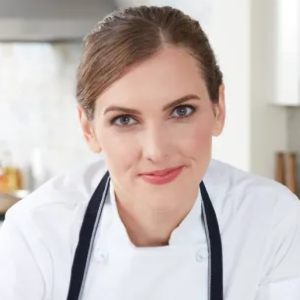Abstract:
Patients receiving treatment for cancer by any modality are likely to experience side effects that affect their ability or desire to consume a variety of nutritious foods. This is a critical issue as maintaining good nutrition and health during treatment may affect patient tolerance of treatments, treatment progression, and quality of life during treatment, which may ultimately affect patient outcomes. However, cancer care teams may not be equipped to provide appropriate, practical, non-medical advice or resources to help alleviate these side effects, or able to provide dietitian consultations on a routine basis. Common eating and diet related side effects include olfactory changes like loss of taste, odour sensitivities, or bitter or metallic tastes in the mouth; gastrointestinal ailments like dry mouth, sore mouth or throat, nausea, vomiting, diarrhea, bloating, and constipation; physical effects such as fatigue and decreased immunity; and neurological effects such as brain fog or mood disturbances. Poor appetite may occur as a direct side effect or secondary to these various side effects and, if not managed well, may lead to malnutrition. The appropriate selection of foods for taste, texture, energy and nutritional content or density, food preparation methods, and eating behaviours (e.g., meal size, frequency) can assist patients in managing these side effects and supporting adequate nutrition throughout treatment. We have compiled practical eating and dietary advice derived from published research articles and various cancer research authorities for addressing treatment related side effects. We have also compiled tailored recipes and culinary tips to help patients and caregivers directly implement this advice. These resources may be helpful tools for use by cancer treatment programs that may lack knowledge and training to assist patients with this critical component of health and treatment success. This information may also be delivered through a supper club format and live cooking demonstrations with instruction designed for patients and caregivers. These resources will be used as a teaching tool for physicians in a new course designed by the University of Toronto and George Brown College (Toronto, Canada).
Audience Take Away Notes:
- This presentation will highlight the importance and practical role of diet and eating guidance for patients experiencing common side effects of cancer treatments.
- The problem being addressed is that many oncology physicians do not have training or knowledge in eating, dietary, or culinary-related advice for cancer patients, and not all cancer treatment programs are able to provide access to dietitians or culinary professionals to assist them in the management of treatment symptoms.
- The audience will come away with practical eating advice for patients, knowledge of available resources for this advice, and examples of specific recipes and food types that may help patients and their care givers manage common side effects at home.
- Information in this presentation will help cancer treatment professionals to understand and access very practical advice for patients. The resources developed for this purpose may be accessed and used directly or can be used as a template to develop similar, culturally, and geographically appropriate resources for patients.




